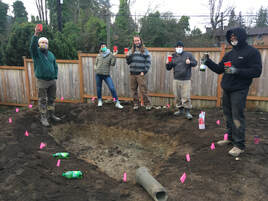 Here at Stone Soup Gardens, we’ve had a busy and very exciting start to this new year. With many new residential and community projects on the horizon, our team has dove into educational opportunities to better serve our community. Leading the Year with Learning RainWise Although Jake got to facilitate the inaugural Rainwise Academy last year, 2020 was dry for rain gardens at Stone Soup. So we were grateful to kick off 2021 with an edible rain garden installation! We had a wonderful opportunity for the whole team to share knowledge on the installation of rain gardens on a residential site. Guided by RainWise contractor resources, we went over the why and the how of rain garden construction including plumbing material standards, how to plan a rain garden’s depth and size, how to choose plants, and how to create the best drainage and overflow systems. It was a fun collaborative session co-facilitated by our three experienced installers. This impromptu training has ensured that every single one of our team members has intricate knowledge of the design and installation process for RainWise rain gardens. Fruit Tree Pruning Workshop We love getting to care for trees, and we love to further our knowledge of how to do so. As part of our team’s monthly education, we had the awesome opportunity to chat with Barb Burrill, an active orchardist involved in the Tilth Alliance, the Seattle Tree Fruit Society, and other groups that look after our city’s plentiful fruit trees. We had an extensive conversation about specific care regimens for all different kinds of fruits, what time of year is best for different kinds of maintenance, and how best to talk to owners of fruit trees about taking care of them. Some of our team has continued to engage and collaborate with Barb and the Tilth Alliance through consistent pruning sessions. Water Brings Life We are excited to share our ongoing collaboration with Highline United Methodist Church in Burien. In 2018, we began work with Highline UMC to design the Hazel Valley Community Garden, which aims to improve stormwater mitigation, increase food access, bring neighbors together, and build healthy soil. In 2019, we returned to collaborate with the Nature Stewards to design and install two edible roadside rain gardens, with Tilth Alliance Soil and Water Stewards to build 30 raised vegetable beds in the community garden, and with King Conservation District to fill those raised beds with Hugelkultur fill. You can learn about our involvement at Hazel Valley Community Farm on our portfolio, as well as in KCD’s blog. This year, we are returning to this site to dive into the next phase of their community installation, a rain-harvesting irrigation system! We will be installing a 6,000 gallon system that will help irrigate the community farm and the growing food forest. See below for photos of our past installation work at this site, or see our portfolio for more. Winter weather is here in the northwest, and it is a blanket of white. Today, sitting in my office in Seattle, I've watched an inch accumulate on the cars parked just out my office window.
One question lingering in my mind as the snow piles up, is whether or not I should be knocking the snow off of my plants? There appear to be several schools of thought on this, but I'm going to go with what is most practical and relevant, based on the current conditions outside. First of all, trying to knock snow off of frozen plants could easily break branches or limbs. While the snow is heavy, particularly for our region, it also behaves as an insulator for the plants, protecting them from further damage. Once the snow stops falling and begins to melt, the plants should begin to slowly recover. The snow also protects the plants from wind, particularly our evergreen and broadleaf plants, and keeps them pinned down rather than thrashing about in icy cold conditions. Since the plants are currently dormant, the lack of light shouldn't affect them. Once spring hits allow your plants time to recover. They may be a bit slow to bounce back this year, and some of them might be saggy or misshapen, but don't get overzealous about pulling them out into you are certain there is no hope of recovery. It is also not wise to shake the limbs or branches on larger trees to remove the snow. Be gentle! The trees are already bearing lots of weight, and could easily snap up and break off causing greater problems for the tree, as well as for you! If a limb does break, have the limb removed and the stub properly cut as the weather allows. This will ensure that your tree stays healthy moving into spring. The main take away from this is to properly prune your plants each year to ensure that they have a strong foundation to support all kinds of weather. Clearly, it is something that we must all be thinking about during this massive snow event. In the meantime, enjoy frolicking in the snow! Our crew is certainly getting a much needed body break during all this weather, but hopefully we'll be back at you soon once conditions improve. ALLEYCAT ACRES CELEBRATES COMMUNITY FARM AT FALL FESTIVAL
by Carolyn Bick October 18, 20218 Link to article Beneath a tent along the little lane at the back of South Estelle Street, children painted freshly picked pumpkins, as others eagerly fed and petted chickens in a mobile coop a few feet away. Though neither the coop nor the tent were permanent, greenery surrounding the was: the lane is the site of Wetmore Community Farm, and Saturday saw the farm’s official grand opening. Run by Alleycat Acres, the free community farm has been open since 2015, but, as Farm Coordinator and Program Director Kyla Rudnick explained, this year marked the end of any major projects on or clearing of the land. The City of Seattle grant-funded farm originally opened, because a family who lived next door was tired of seeing the derelict land and got in contact with the organization. “We started holding community meetings in the neighborhood to see if people were interested in a community garden, and what they wanted to do with the space and went from there,” Rudnick said. “We’ve been holding events here for about three years. … Now, we just have some more planting to do, and start maintaining the site.” The farm is run in partnership with the Rainier Valley Food Bank, Senior Housing Assistance Group, the Downtown Emergency Service Center, and Stone Soup Gardens. In the years to come, Rudnick said they hope to get more of the community itself involved. Having the space serve as a community garden is important, she said, because there isn’t any green space like it in the immediate area. While that isn’t necessarily a problem for younger people, it can be a problem for seniors. “We have a lot of senior citizens who live in the neighborhood, so having that green space where they can walk is really important,” Rudnick said. “Of course, all the food that we grow here is going directly to neighbors. … There are grocery stores around here, but having free, fresh produce is, of course, a boon to any neighborhood, and especially here, where we have such a dense neighborhood.” Garden neighbor Plekeo Douangdara said she and her husband enjoy gardening, and that she walks around the community garden “all the time.” She’s been gardening for 30 years, she said, and is excited to contribute seeds and plants to the space. “I have a lot of seeds, like Asian corn, Asian pumpkin, eggplants,” Douangdara said. “She said, ‘Okay, you can plant!’ … Very cool. Before, nobody wanted to go in here … but this year and last year is better.” When: Tuesday, October 2, 2018 - 7 - 8:30 pm
Where: 21 Acres Center, 13701 Northeast 171st Street, Woodinville, WA 98072 Permaculture Woodinville is hosting a Who’s Who in Hügelkultur where working landscape and permaculture professionals (including our own Jake Harris!) will offer homeowners insight on how to incorporate hügelkultur into landscape design. Interested individuals are welcome to come learn about Hügelkultur, the European art of mound building, that provides; *long term source of plant nutrients *creation of healthy soil *more surface area for plants *water retention in the soil *use of recyclable material from your property ***Prior to the panel of experts discussion at 7pm Permaculture Woodinville will give a walking tour of the ongoing Hugelkultur projects at 21 Acres. The tour will start at 6pm.*** Article By Hannah Kett, The Nature Conservancy - Cities Program Manager
Photo by Hannah Letinich A year ago, the parking lot at Kent Hillside Church was just that — a parking lot, with moss growing on the cracks and an almost constant stream running along the bottom of it. Today, it is hard to picture what it used to look like. Now, it is now home to 50 garden plots, four cisterns, a tool shed and blossoming community. Paradise Parking Plots is hosted at Hillside Church in Kent and is a project with World Relief Seattle. The goal is to transform 2 acres of parking lot into a community farm for the surrounding refugee population which will become a hub for community building through food. Designed by Stone Soup Gardens, Paradise Parking Plots will be a powerful demonstration home to the first raingardens in Kent, will capture part of a 30,000 square foot roof into large cisterns, and will help to turn a natural spring into a habitat pond. (The stream currently runs across the pavement and into a storm drain.) On June 23rd, Stone Soup Gardens employees went to the first Depave project to help create a garden paradise! Marco, our designer, Patrick, our crew lead, Susan, our Office Manager, and Jake - our esteemed leader headed off to pick up a shovel and lend a few hands. Here is a look at the overall property before the depave. (The parking lot we were working to remove is the rectangular lot below the church building. ) Thanks to Turner Construction, their fabulous employees, their awesome heavy equipment, tools, and safety gear, along with other volunteers from World Relief Seattle, King County Conservation District, and Hillside Church, we were able to remove most of the asphalt from the parking areas, and put it into large dumpsters to be hauled away. Great job everyone! We are looking forward to seeing this as it progresses. Check out this article from King 5 about the project.
Paradise Parking Plots is hosted at Hillside Church in Kent and is a project with World Relief Seattle. The goal is to transform 2 acres of parking lot into a community farm for the surrounding refugee population which will become a hub for community building through food. Designed by Stone Soup Gardens, Paradise Parking Plots will be a powerful demonstration home to the first raingardens in Kent, will capture part of a 30,000 square foot roof into large cisterns, and will help to turn a natural spring into a habitat pond. (The stream currently runs across the pavement and into a storm drain.)
On June 23rd, they are hosting a volunteer party led by the employees of Turner Construction who will be de-paving and releasing the earth from the confines of asphalt. It's going to be ground breaking! They are asking for additional help from the community to aid in this work, all are welcome and there is much to do. Please RSVP to Tahmina Martelly at [email protected] so that enough safety gear and lunch can be provided. Our favorite event of the year is next weekend! Come buy some beautiful starts from Tilth, say hello to your Seattle community, and cuddle some chickens with Stone Soup Gardens. We'll be on site with our lovely flock o'birds who are just a flutter with the cuddling possibilities. Come and get your garden on. We can't wait to see you.
With Seattle being hilly, yard space is often sculpted around unusual terrain. We see this fairly often, and find many owners that are at a loss on how to take full advantage of these uneven spaces. As well as being difficult to envision, the spaces are generally hard to tame, manage, or manipulate into something worth enjoying. Stone Soup Gardens loves these kinds of challenges. Whether you have a steep slope, a soggy pit, or a hilly blackberry divide, we can turn your unused space into something for you and your family to enjoy. We can create a functional area for growing edible plants, or create a level retreat for those sunny spring and summer days. One of our clients in Columbia City has just such a space. While the yard area itself is fairly level, it is raised up sharply on a hill overlooking the street, and the backyard was a bramble patch. Seeing the unused potential of the area, our client contacted us to see what we could do. Hence, the great berry wall came into play. The great berry wall was built using downed timber from a local contact. We had the majority of the logs cut to a specific size, while others we trimmed to create easy step access in and out of the raised bed. This allows for ease of picking as the berries come into season, as well as for watering and pruning once summer and fall roll around. We planted the raised bed out with different types of raspberries, strawberries, gumi berries, lingon berries, thimbleberry, chilean guava, lavender, and sage, as well as espalier apples and pears, chives, and red flowering currant in other parts of the yard. This means that there will be a good selection of plants that stay green throughout the year, as well as those that will shed their leaves during the winter. It also creates a nice color palette for the eyes, as well as flavors for the mouth! For a bit of flare, we also included a bike wheel arbor along the front wall of the house, which was a great way to add interest, while providing a surface for things to climb on. We installed a laundry to landscape greywater system in the front yard which will water the espalier trees and herbs, and in the backyard we installed a cistern to side sewer which will provide water for the raised bed in the backyard. Take a look at the project beforehand: And here it is now:
|
This is how Stone Soup Gardens rolls - check out our blog for current, upcoming, and past projects, events, and other super cool stuff worth mentioning.
Archives
|

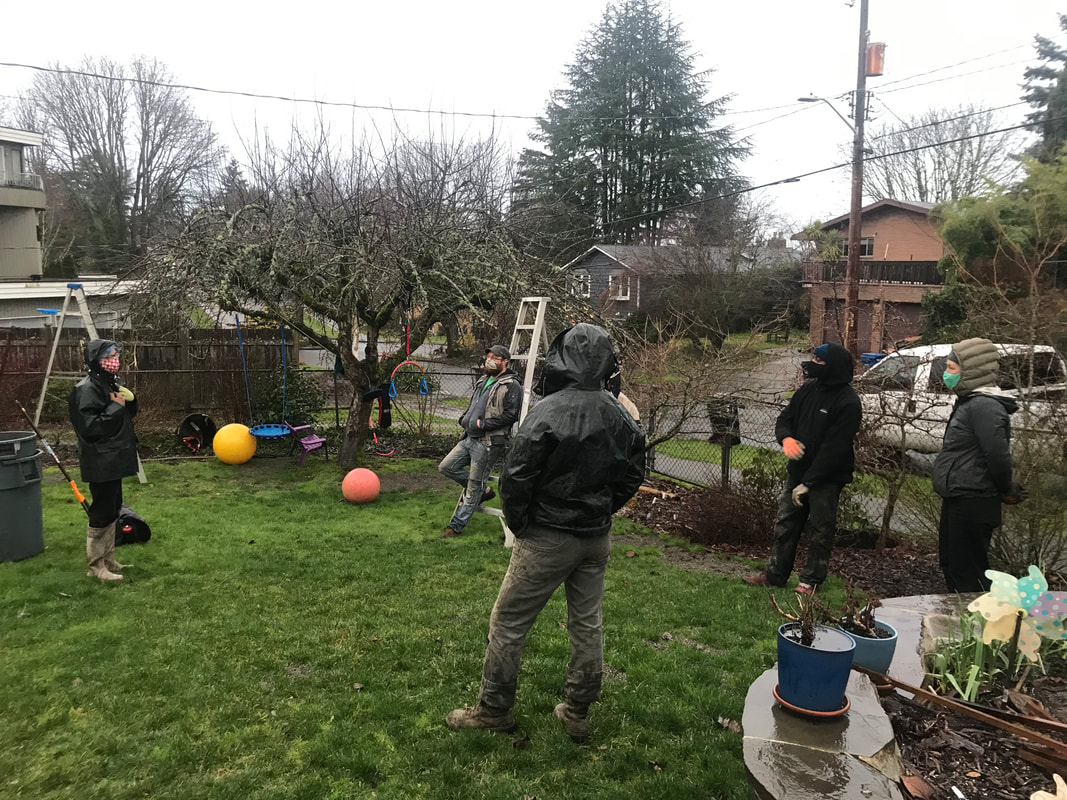
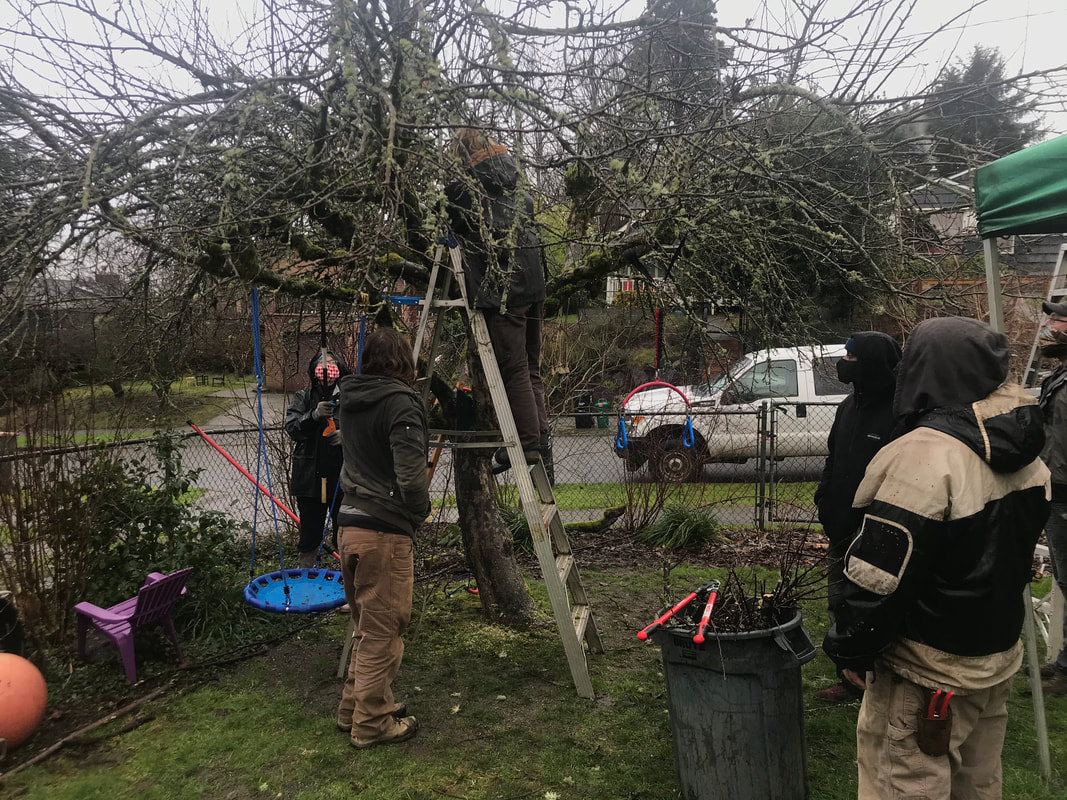
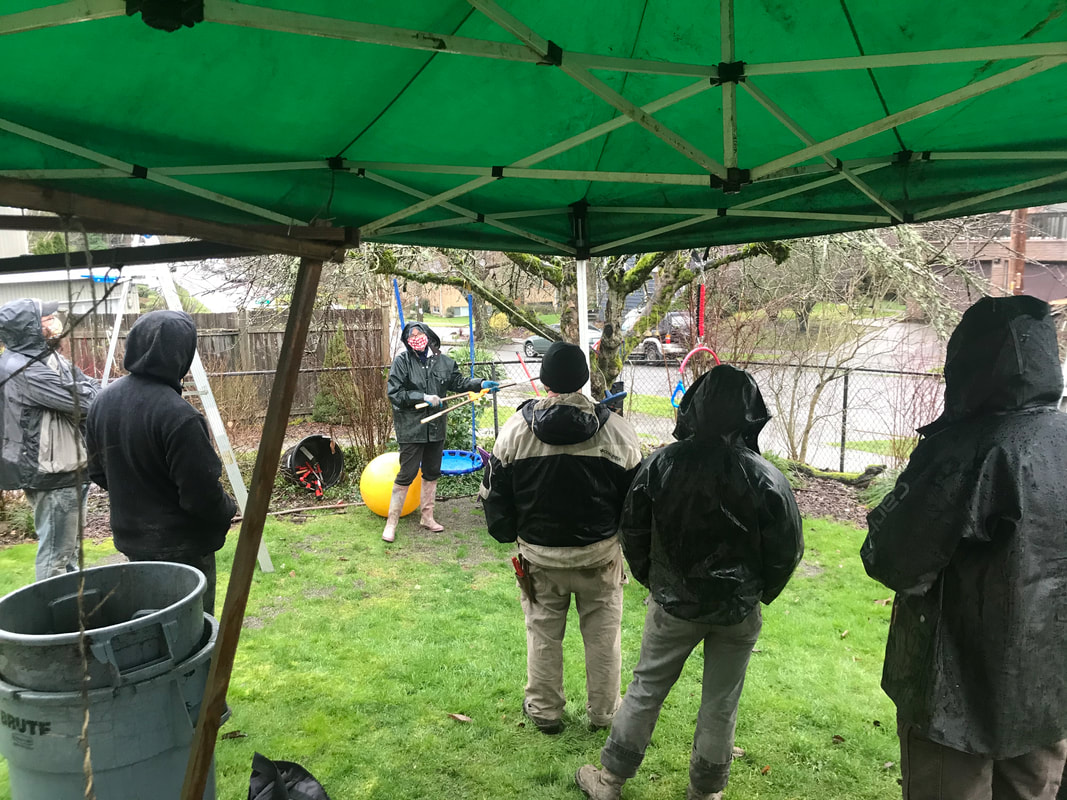
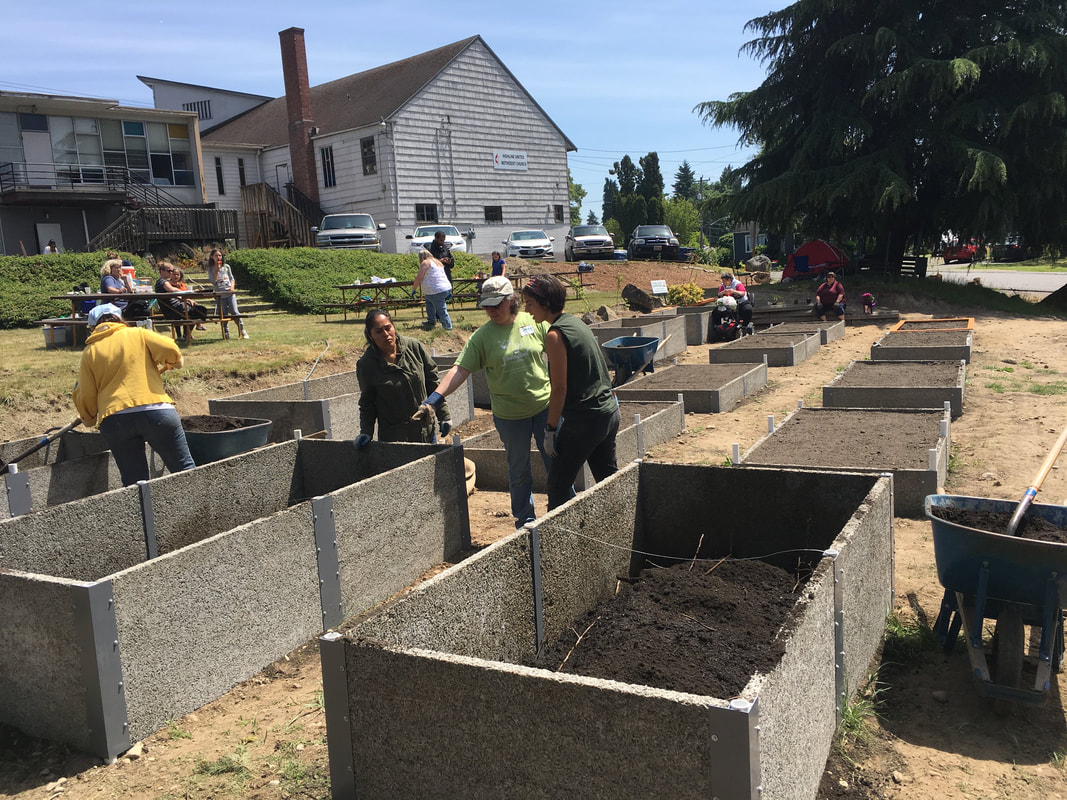
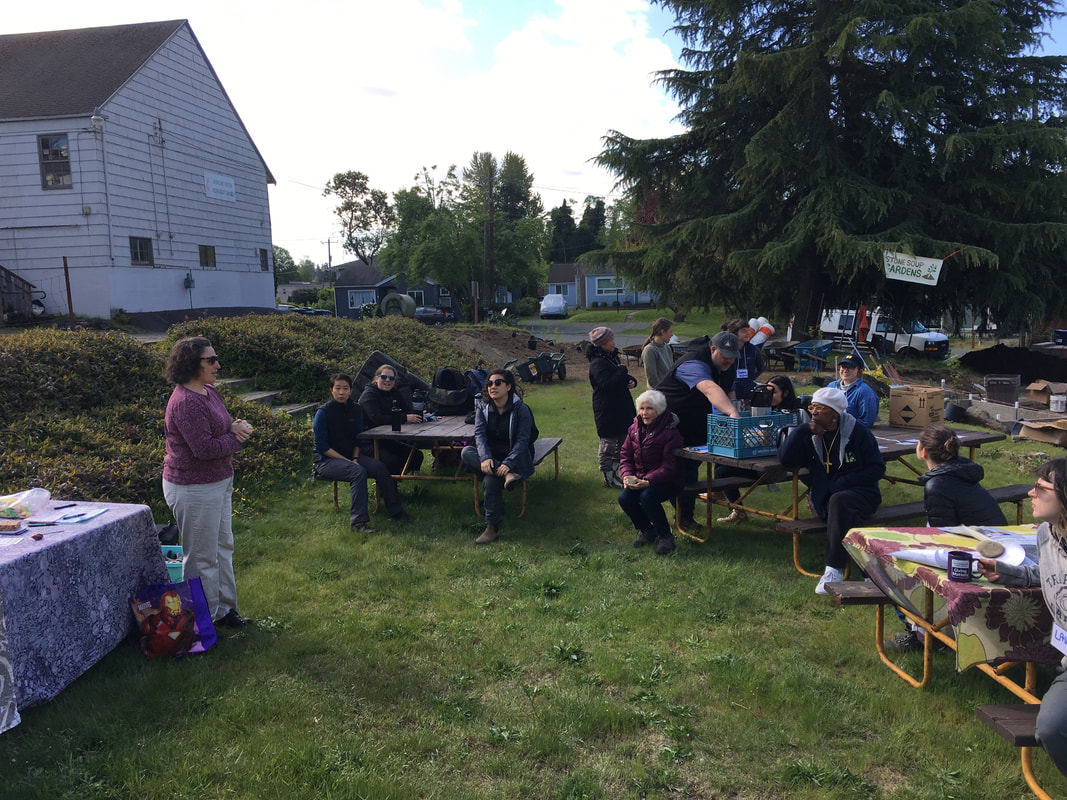
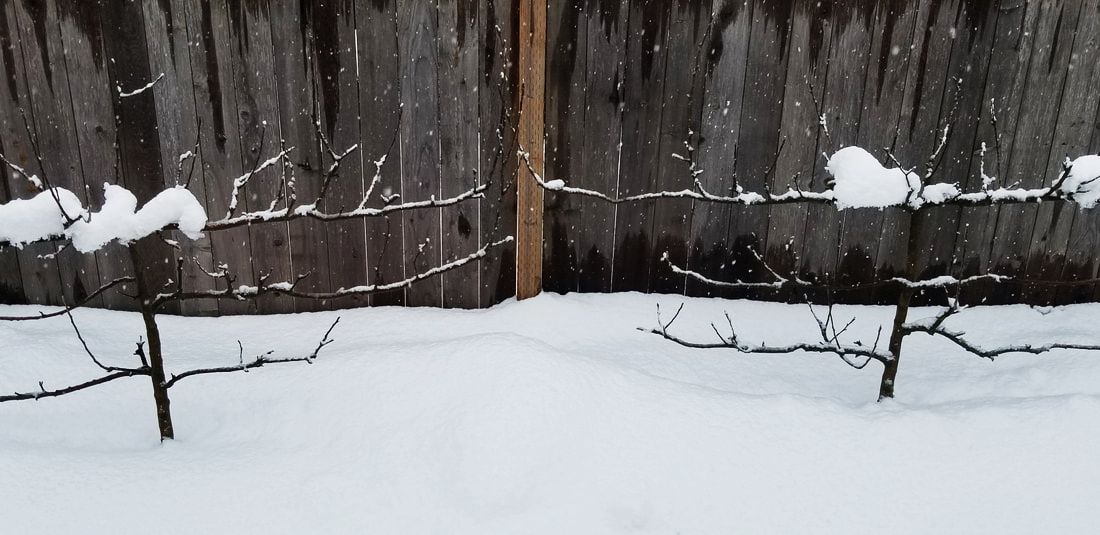
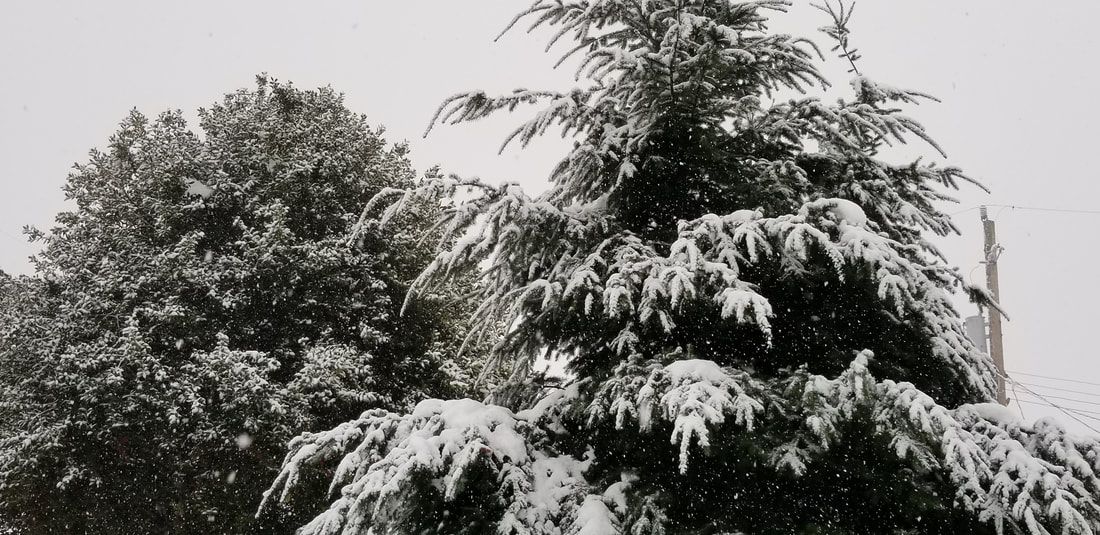

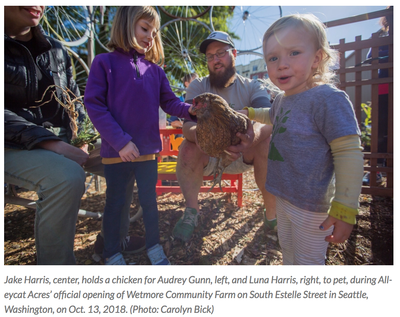
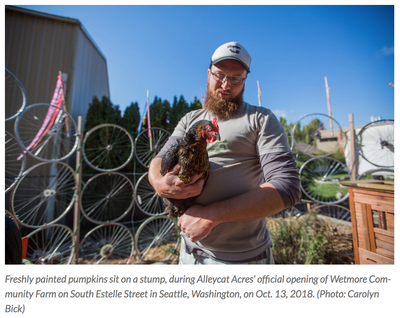
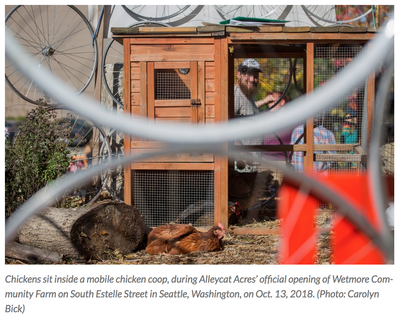
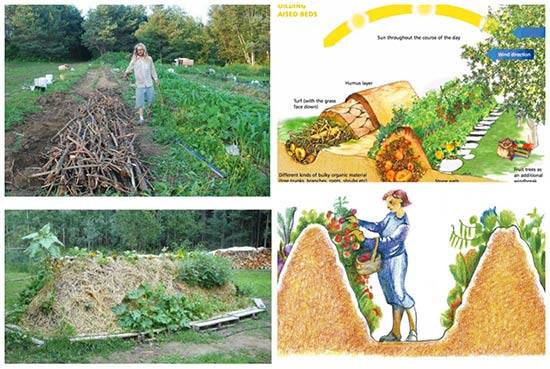
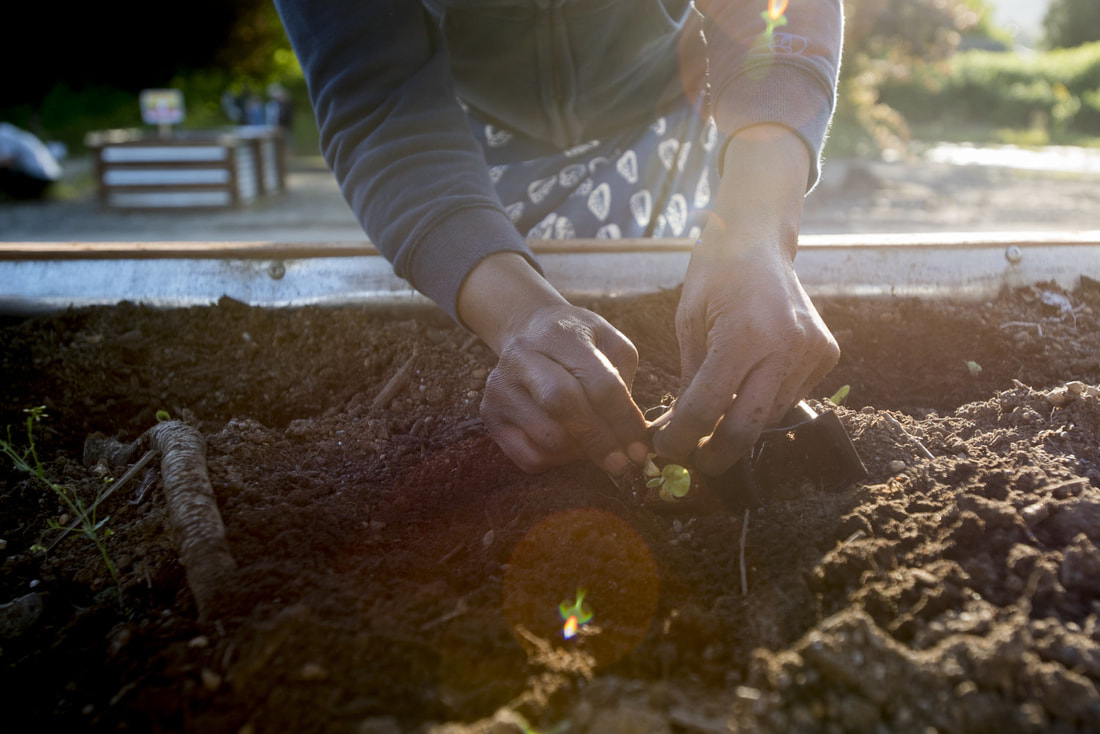
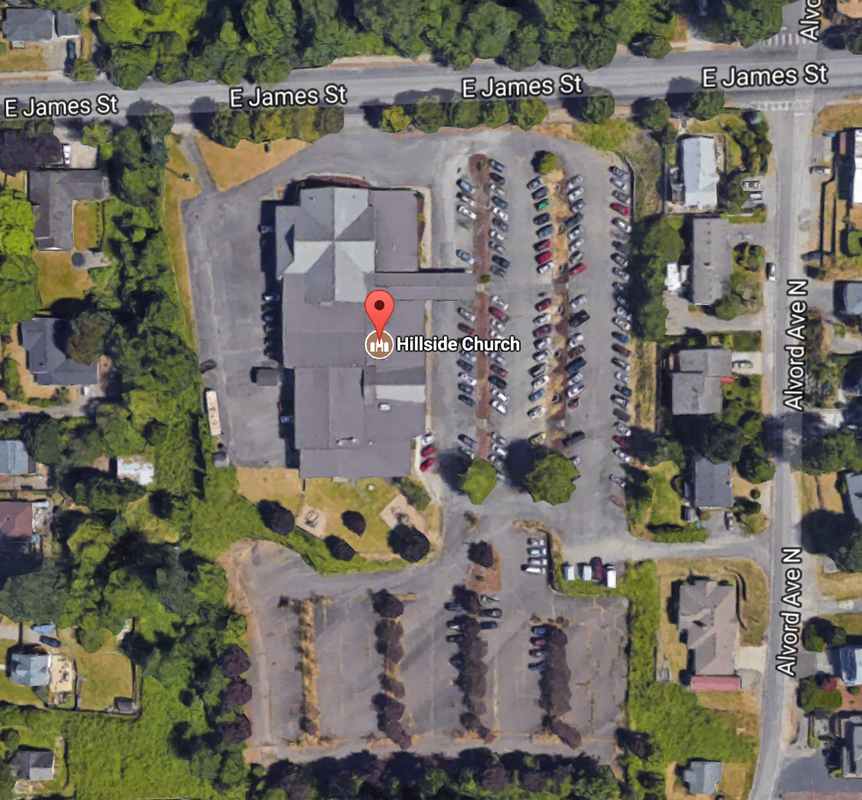
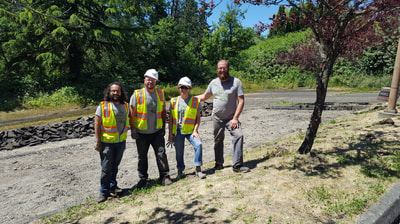
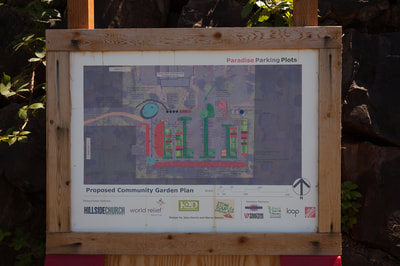
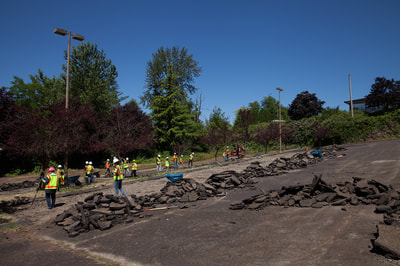
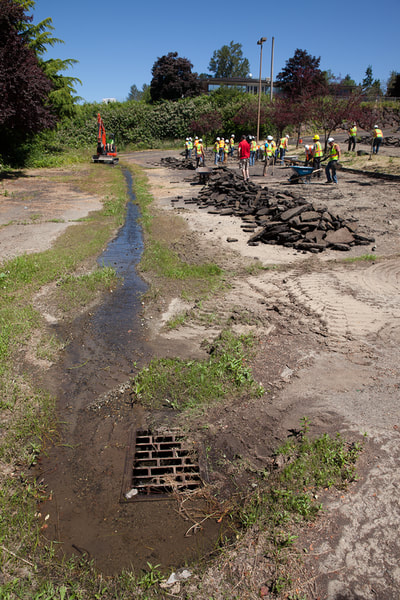
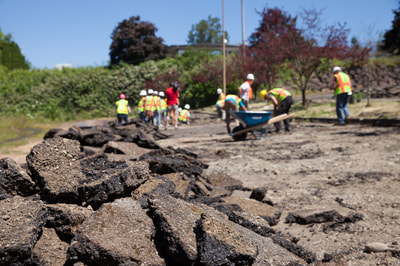
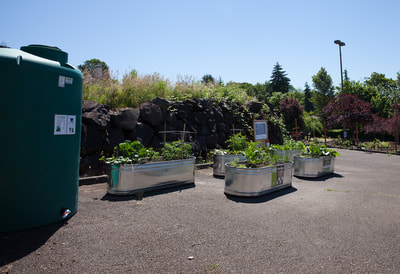
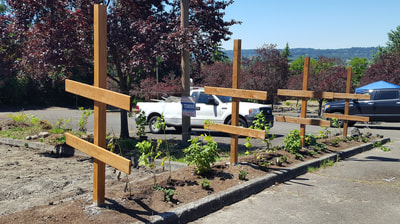
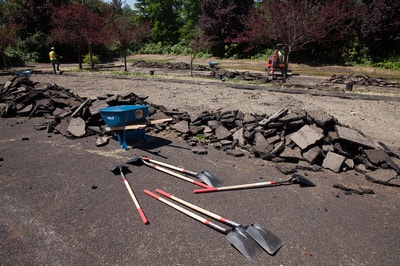



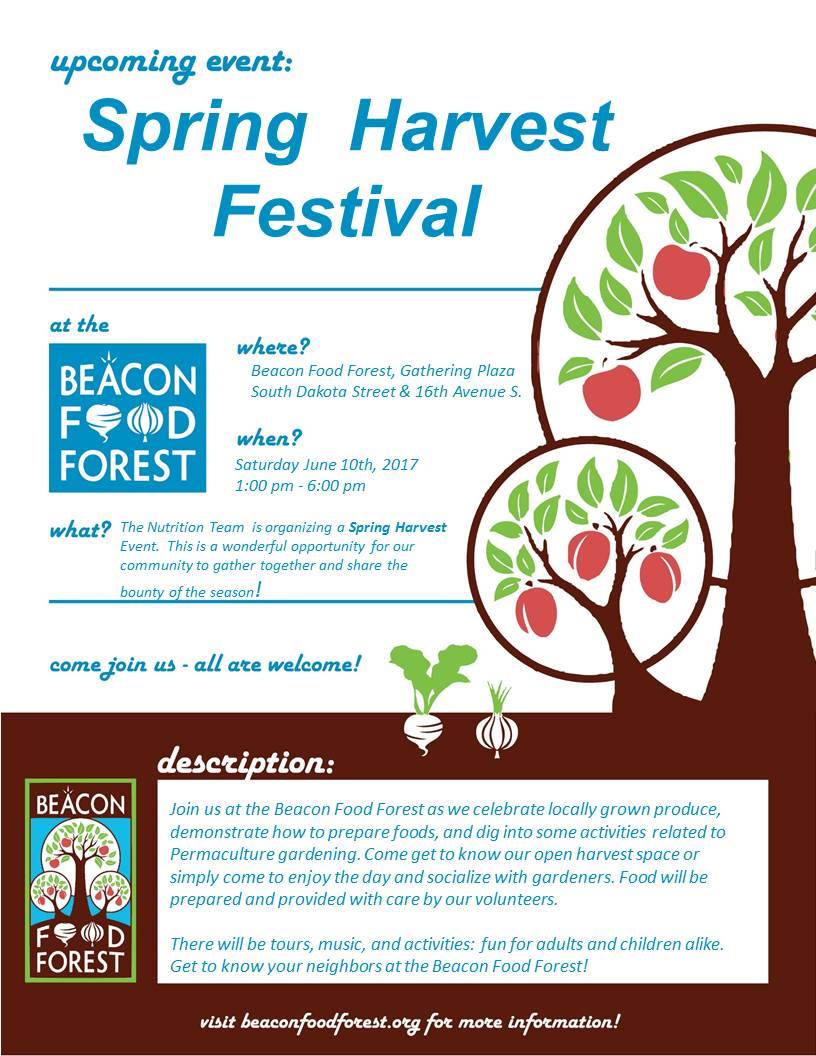



















 RSS Feed
RSS Feed